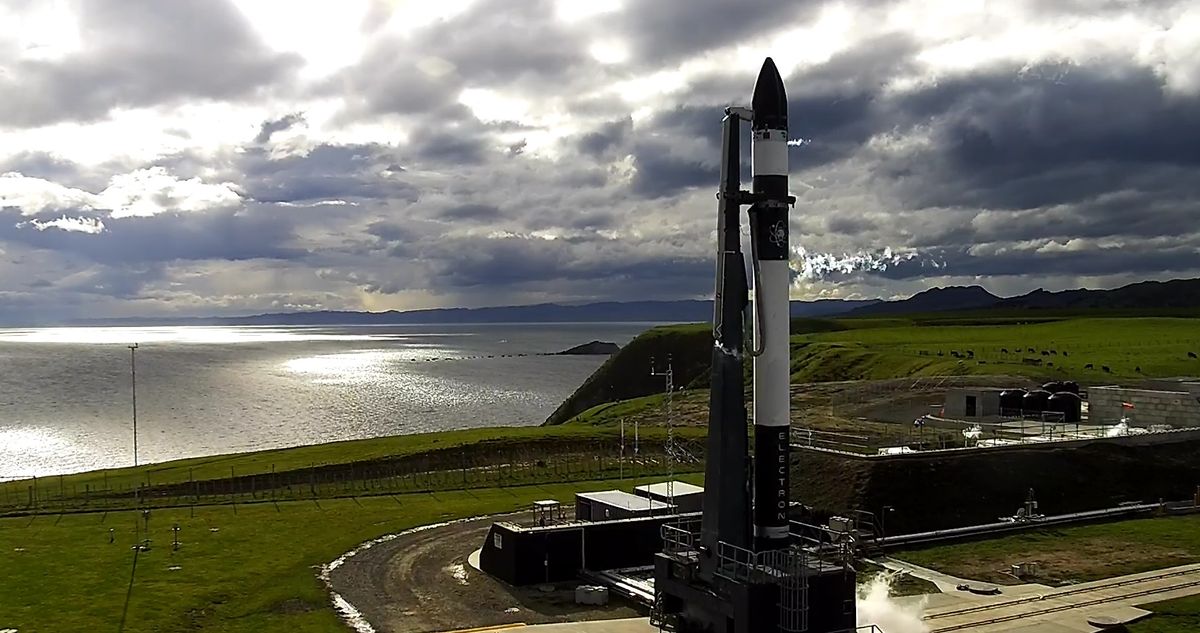
Rocket Lab's comeback mission will lift off on Wednesday night (Aug. 26), if all goes according to plan.
The California-based company hasn't flown since July 4, when its two-stage Electron rocket suffered an anomaly shortly after launch, ending a string of 11 straight successful missions.
By the end of July, Rocket Lab had traced the problem to a single faulty electrical connection in the Electron's upper stage. Company representatives stressed at the time that the booster would be up and running again soon, and that optimism has now been borne out.
An Electron is scheduled to lift off from Rocket Lab's New Zealand launch site during a two-week window that opens Wednesday at 11:05 p.m. EDT (0305 GMT on Thursday, Aug. 25), company representatives announced via Twitter on Friday (Aug. 21).
Related: Rocket Lab and its Electron booster in photos
Wet dress proceeding well. pic.twitter.com/06DlwPCkicAugust 24, 2020
The upcoming mission, known as "I Can't Believe It's Not Optical," will loft a satellite called Sequoia for the San Francisco-based company Capella Space. (Rocket Lab missions traditionally get playful names.) Sequoia will be the first satellite in Capella Space's planned constellation, which will observe Earth in radar light.
"Sequoia is a 100-kg-class microsatellite and will be positioned in a 45-degree inclination. This mid-inclination allows us to give our customers immediate access to rapid coverage of important regions, including the Middle East, Korea, Japan, Europe, South East Asia, Africa and the U.S.," Capella Space representatives wrote in a blog post today (Aug. 24). (One kg, or kilogram, is about 2.2 lbs.)
"Like all of our Capella satellites, Sequoia will be able to see through clouds and in the dark and detect sub-0.5-meter changes on Earth’s surface," they added. "When fully deployed, our satellite constellation will offer hourly coverage of every point on Earth."
Rocket Lab aims to greatly increase access to space with the 57-foot-tall (17 meters) Electron, which can loft about 660 lbs. (300 kg) of payload to low Earth orbit on each flight.
The company's overall vision involves transforming the expendable Electron into a reusable rocket, and Rocket Lab aims to take a big step toward this goal soon. On Electron's 17th mission, the company plans to bring the rocket's first stage down for a guided, parachute-aided ocean splashdown, then recover the booster and analyze it to inform the refurbishment and reflight process. (Wednesday's launch will be the 14th for Electron.)
Eventually, Rocket Lab plans to pluck falling Electron first stages out of the sky with a helicopter. (Electron is too small to make propulsive, vertical landings like the first stages of SpaceX's Falcon 9 rockets do, Rocket Lab founder and CEO Peter Beck has said; Electron cannot carry enough fuel to have the requisite amount left over for a powered landing.)
Rocket Lab also has its sights set far beyond Earth orbit. The company plans to launch a life-hunting mission to Venus in 2023, for example, and Beck has said Electron and Rocket Lab's Photon spacecraft bus can be used to explore other distant destinations as well.
Editor's note: This story was updated at 4:10 p.m. EDT with details about the payload for Wednesday's launch.
Mike Wall is the author of "Out There" (Grand Central Publishing, 2018; illustrated by Karl Tate), a book about the search for alien life. Follow him on Twitter @michaeldwall. Follow us on Twitter @Spacedotcom or Facebook.
The Link LonkAugust 25, 2020 at 02:14AM
https://ift.tt/2YvyAHA
Rocket Lab's return-to-flight mission for its Electron booster launches this week - Space.com
https://ift.tt/2DVP6sH

No comments:
Post a Comment